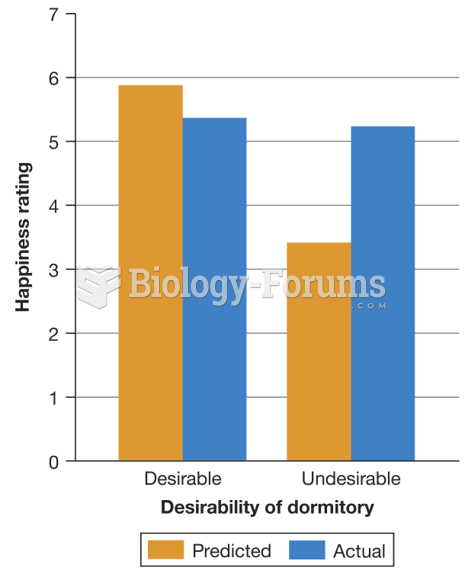|
|
|
ACTH levels are normally highest in the early morning (between 6 and 8 A.M.) and lowest in the evening (between 6 and 11 P.M.). Therefore, a doctor who suspects abnormal levels looks for low ACTH in the morning and high ACTH in the evening.
A cataract is a clouding of the eyes' natural lens. As we age, some clouding of the lens may occur. The first sign of a cataract is usually blurry vision. Although glasses and other visual aids may at first help a person with cataracts, surgery may become inevitable. Cataract surgery is very successful in restoring vision, and it is the most frequently performed surgery in the United States.
Critical care patients are twice as likely to receive the wrong medication. Of these errors, 20% are life-threatening, and 42% require additional life-sustaining treatments.
There are more nerve cells in one human brain than there are stars in the Milky Way.
Elderly adults are living longer, and causes of death are shifting. At the same time, autopsy rates are at or near their lowest in history.
 Pierolapithecus catalunicus may be an ancestor of great apes and humans. Its postcranial skeleton sh
Pierolapithecus catalunicus may be an ancestor of great apes and humans. Its postcranial skeleton sh
 Pulmonary embolism. The purple shaded section shows the area of the lung that is dying from lack of ...
Pulmonary embolism. The purple shaded section shows the area of the lung that is dying from lack of ...
 The end of a typical line wrench, which shows that it is capable of grasping most of the head of ...
The end of a typical line wrench, which shows that it is capable of grasping most of the head of ...




